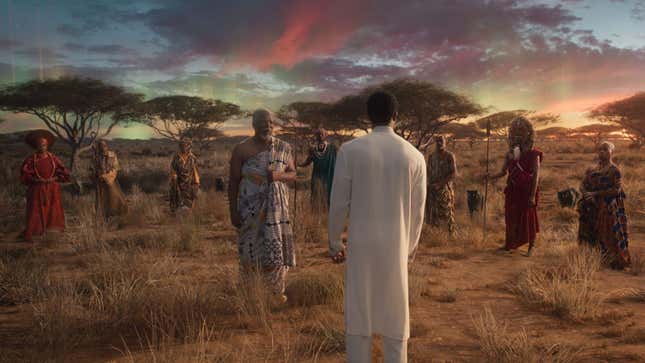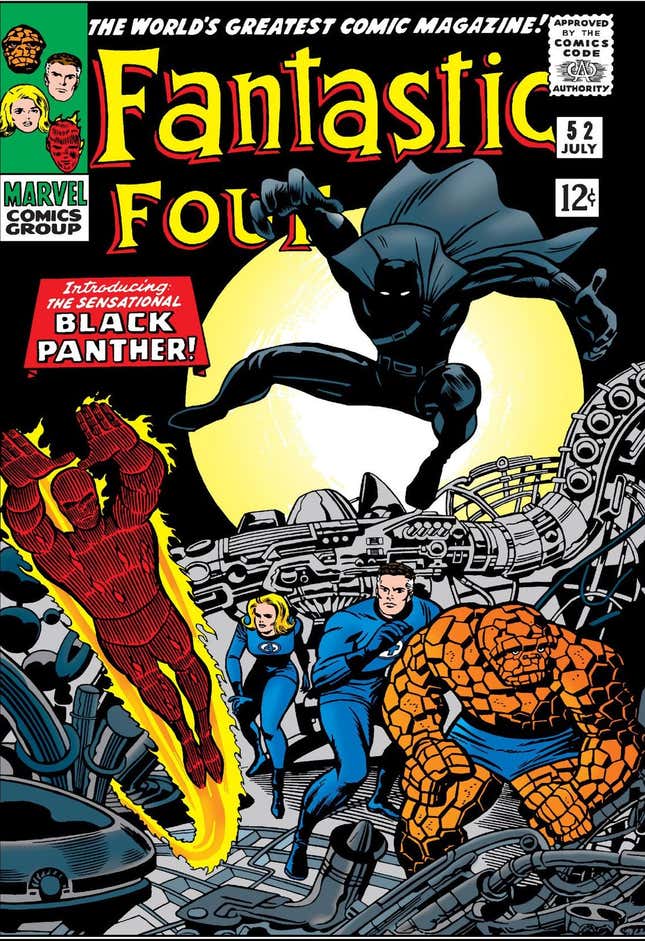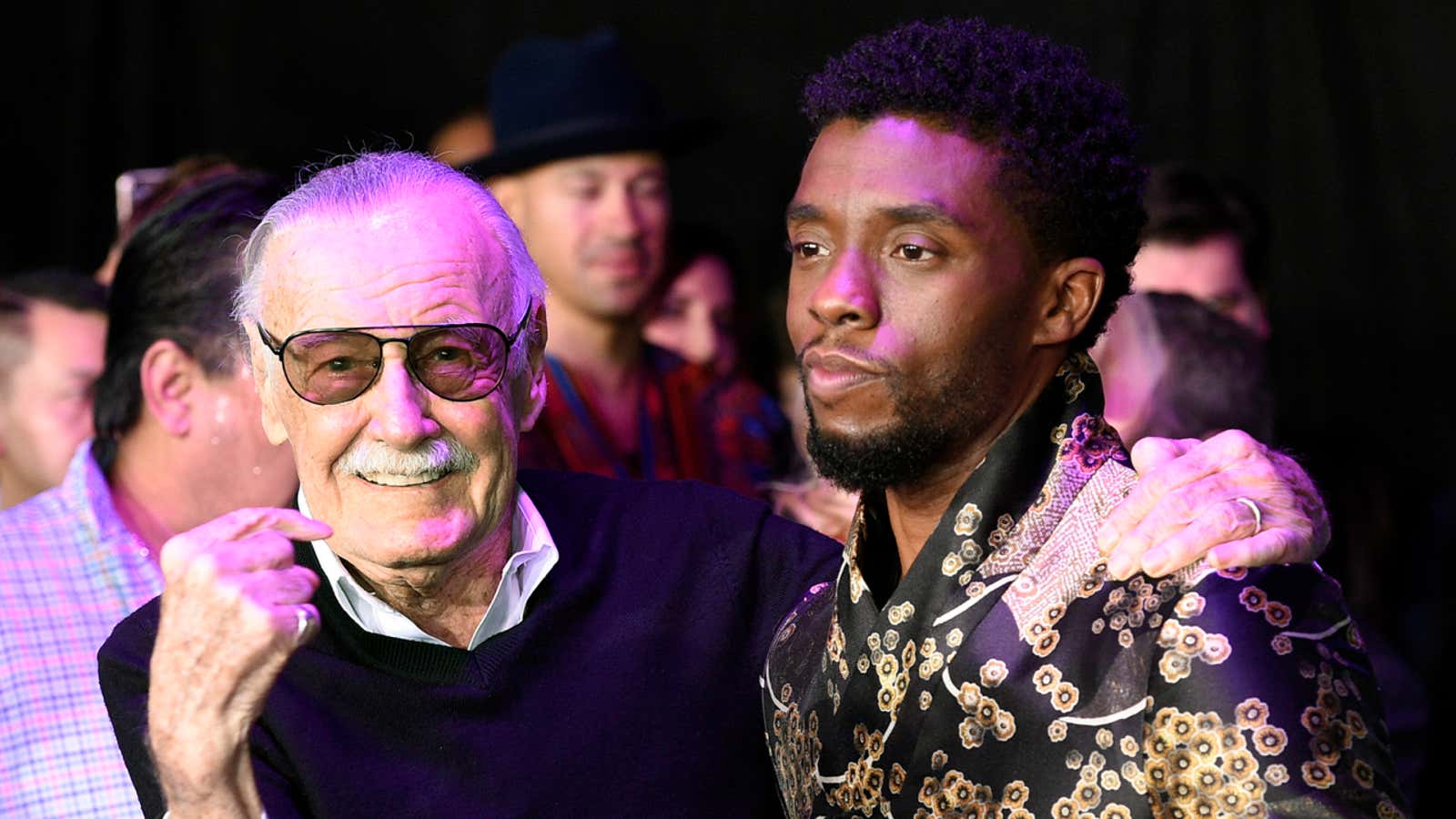The commercial success of Marvel’s Black Panther film in 2018 belies just what a risk it was for Stan Lee to create the revolutionary African character. Lee, who died this week at the age of 95, created the Black Panther in 1966 with writer and artist Jack Kirby.
A highly powerful and extremely intelligent black character from Africa and fighting in the United States was groundbreaking for its time, not only politically but artistically. From their inception, cartoon images, and later comic culture, echoed the beliefs of the society that drew and read them. In the early twentieth century, racism was not only policy, it was also pop culture.
From 1918’s Tarzan of the Apes where Africa is as a land that could only be tamed by a white man to the unfortunate Congolese who encountered the Belgian comic character, Tin-Tin. The comic series portrayed Africans as lazy, stupid or in awe of Tin-Tin.
The other animated Africans who would have been the Black Panther’s predecessor were usually nothing but a backward stereotype—witless cannibals with a bone through the nose, helpless background figures that echoed the wretched Africans of Joseph Conrad’s Heart of Darkness, or dim singing and dancing minstrels in blackface.

That these stereotypes of black people are still trotted out today shows just how visionary Lee was for his time. Of course, there were black artists who held their own progressive ideas on the portrayal of black people, but Lee is an example of a white man using his privilege long before being woke became a hashtag.
The portrayal of Africa has also remained stubbornly one-dimensional. Africa in the late sixties and early seventies was filled with post-independence optimism, but the international image of the continent was one of a continent that still needed paternalistic guidance, in the form of neocolonialist policies. It was hardly a place of innovation and technology, and yet Lee saw this potential.

T’Challa is already one of the African elite, an educated prince who lives between Africa and the west. His scientifically advanced kingdom outpaces the space race underway at the time, specifically because it is able to control its own natural resources. It’s no coincidence that Wakanda thrives specifically because it has never been colonized like the rest of the continent.
Of course, Black Panther did not escape the politics of the time, and Lee was not as outspoken about race and diversity then as he was before his death. Early on, Lee distanced the character from the Black Panther party and the civil rights organizations with similar monikers that preceded the party.
Still, Lee later said that the real-life heroes of the civil rights movement had in fact inspired him. In his current role as the star of a box-office film, the Black Panther has openly carried the hopes of Africa and the black diaspora.
